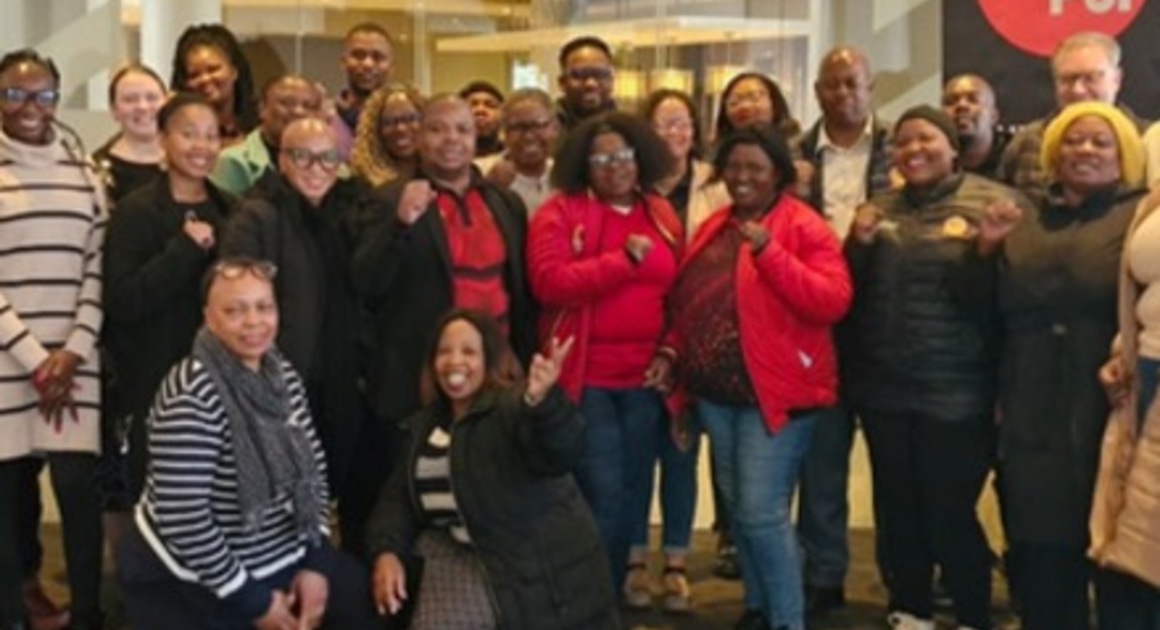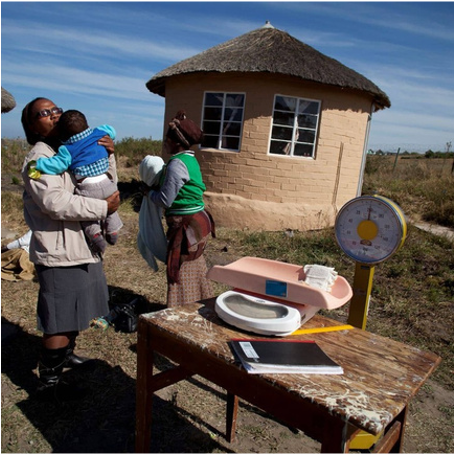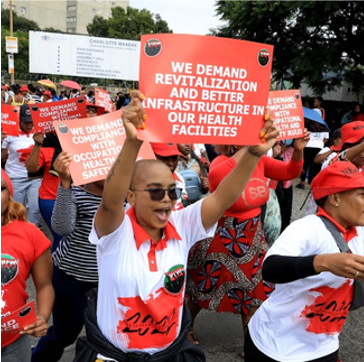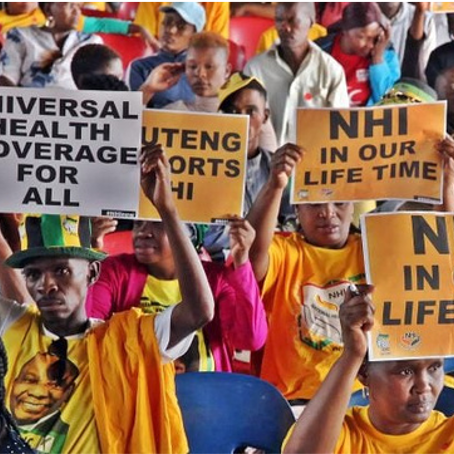-
Tags (11)
- South Africa
- Health & Social Care Services
- Health and Other Service Personnel Trade Union of South Africa
- Democratic Nursing Organisation of South Africa
- National Union of Public Service and Allied Workers
- PSI
- Congress of South African Trade Unions
- Africa & Arab Countries
- Southern Africa
- Solidarity Center
- Health & Social Care Services
Garden Court Milpark, Johannesburg, South Africa, 30 - 31 July 2025 Trade Union Conference on the Future of Community Health Workers in South Africa

While welcoming the commitment made by the Minister of Health to permanently employ 27,000 CHWs, Community Health Workers (CHWs), union leaders, health experts, and civil society allies met to assess the challenges facing CHWs and strategise for their recognition as essential health professionals. With donor funding cuts threatening thousands of posts and uncertainty around their role in the National Health Insurance (NHI), the workshop focused on building a unified, worker-centred response to integration of CHWs into public health reforms.
- Read this in:
- en

Aisha Bahadur
In his opening, Solly Malema, General Secretary of NUPSAW celebrated as a major victory the announcement of 27,000 CHWs permanent posts which the union continues to monitor to ensure full implementation across all provinces. CHWs form the backbone of South Africa’s primary healthcare system, providing critical services in underserved areas, yet they face precarious jobs, poor conditions, and limited policy recognition. This commitment has directly resulted from the union's long-standing pressure and campaigns and will improve the working conditions for many CHWS, not for all.
Community Health Workers (CHWs) in South Africa trace their roots to the 1940s, yet remain largely outside the formal health system, relying on NGO and donor funding. Despite the 2011 WBPHCOT policy to integrate CHWs into primary care, most of the 54,000+ workers face insecure contracts, low stipends, poor conditions, and limited training. NUPSAW calls for stronger teams, standardised training, proper leadership, better oversight, and finalisation of the updated policy.
Global aid cuts and PEPFAR restrictions are severely disrupting CHW-led programmes, reducing HIV testing, treatment, and prevention services, especially in rural areas where CHWs are often the only care providers. With over 8,000 CHW jobs at risk, communities face worsening health outcomes and weakened healthcare access.

Austerity measures have deepened the precarity of CHWs, with shrinking health budgets, stagnant salaries, and underfunded WBPHCOTs. Without plans to absorb donor-funded workers, up to 20,000 CHWs risk losing their jobs, further weakening South Africa’s public health system.
Despite funding cuts and fragmentation, CHWs and unions can draw on existing networks, digital tools, and lessons from COVID to strengthen organising. International frameworks like the WHO CHW Guideline, ILO Decent Care Work Agenda, and ILO C190 provide a basis to demand fair pay, safe conditions, legal protections, and stronger community engagement.
The NHI Act offers potential to transform healthcare but currently excludes CHWs, lacks clear roles for them, and limits community input. Advocates stress that a successful NHI must include trained, permanently employed CHWs with improved conditions, as they are vital to primary healthcare delivery.

The Way Forward
CHWs demand permanent jobs with fair contracts, training, PPE, and standardised conditions, alongside an end to NGO labour-brokering. They call for government absorption of CHWs affected by aid cuts, proper budgets, and non-duplicated services. WBPHCOT demands include standardised employment, resources, and full integration into public healthcare. For the NHI, CHWs seek clear roles and recognition in legislation. They also demand safe working conditions, transport, protection from violence, and adequate facilities.
